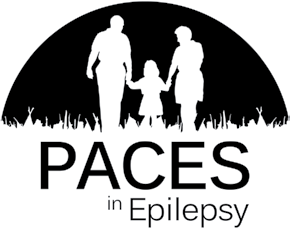Promising PRC Program May Help Adults Manage Epilepsy
 A recent study suggests that adults with epilepsy may be able to manage this condition better with support and instruction.
A recent study suggests that adults with epilepsy may be able to manage this condition better with support and instruction.
A Program for Epilepsy Self-Management
Many people with epilepsy, also known as seizure disorder, do not have access to self-management supports to help them manage this condition.The Program for Active Consumer Engagement in Self-Management (PACES) can help them learn the skills they need to manage their epilepsy and its treatment. PACES was developed by researchers at the University of Washington Prevention Research Center as a way to improve self-management and address mental health problems in adults with epilepsy.
About 2.4 million adults in the United States have active epilepsy. Challenges for this population can include a limited understanding of the condition and its treatment; issues related to emotional and social well-being and stigma; and limitations in work, school, sports, and social activities.
PACES in Action
A study found that adults with epilepsy who participated in PACES (2010-2013) were more confident in their ability to manage their epilepsy than the comparison group of adults who did not participate in the PACES study. After 6 months, they showed improvements in their understanding of their condition and their ability to manage medication side effects like fatigue.
For this study, the 92 PACES participants were randomly assigned to two groups at two epilepsy centers in Seattle, Washington. They met one night a week at a local hospital in groups of six to eight people for 8 weeks. Each session was led by a psychologist and a trained peer with epilepsy. The sessions included activities and discussion on epilepsy-related topics such as medical issues, stress, mental health, self-management, and communication. At the end of each session, the co-leads helped participants talk about coping strategies and how they would apply what they had learned.
PACES in Rural Areas
The University of Washington PRC is also working with local partners to adapt and evaluate how PACES can be used to help adults with epilepsy in rural areas of Wyoming, Montana, and Idaho. Many states restrict the ability of people with epilepsy to get a driver’s license, which limits their options for travel. In addition, people living in rural areas have longer travel distances between their homes and the services they need, making it difficult to get timely care. Self-management programs delivered by phone or online could improve the health and quality of life of people with epilepsy.
The University of Washington HPRC is also working to improve the quality of life for people with epilepsy through its membership in the Managing Epilepsy Well (MEW) Network. MEW network members work together to develop and test epilepsy self-management tools and programs.
Resources
Learn more about epilepsy self-management resources, including free webinars and podcasts with epilepsy experts:
- Managing Epilepsy Well (MEW) Network
- PACES in Epilepsy: Results of a Self-Management Randomized Controlled Trial
- Web Epilepsy Awareness Support and Education (WebEase)
- Using Practice and Learning to Increase Favorable Thoughts (UPLIFT)
- Program to Encourage Active Rewarding Lives (PEARLS)
- Managing Epilepsy Well Network At-a-Glance [PDF -1M]
- Managing Epilepsy Well Network: Putting Collective Wisdom to Work for People With Epilepsy [PDF - 4M]
- Page last reviewed: January 14, 2016
- Page last updated: January 14, 2016
- Content source:


 ShareCompartir
ShareCompartir